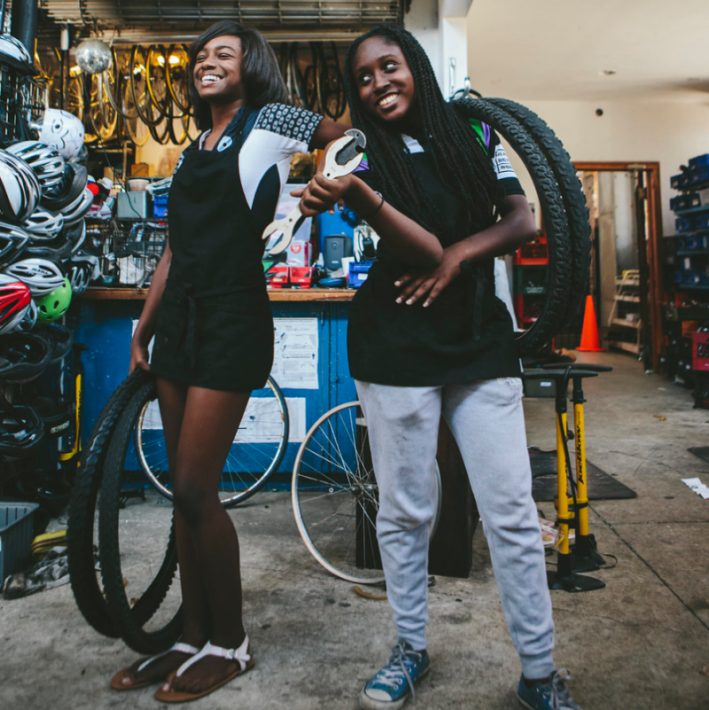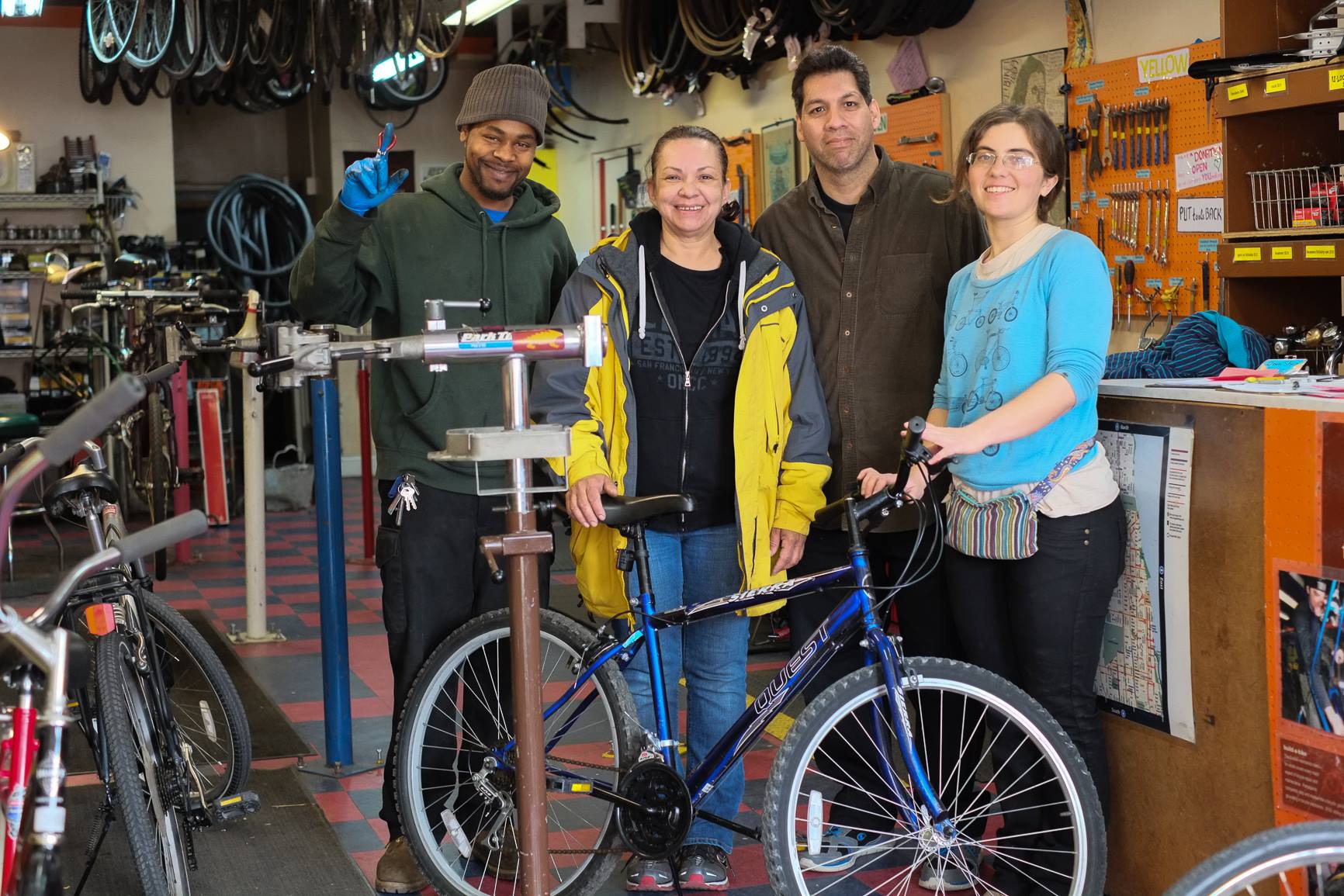Streetsblog reporter Lynda Lopez recently told the Chicago Tribune that cycle shops are usually run by white men, which can make them somewhat intimidating for women and people of color. “I rarely feel that I’m not being looked down upon” in bike shops, she said. Here are more of her thoughts on the subject.
I’ve been to a lot of bike shops across the city, partly because I’ve lived across the city. It’s always been hard to find stores where I felt welcome, especially when I first started riding a bike on the streets after high school. I felt that shop attendants, mostly male and mostly white, thought I was silly for asking basic questions. When you’re learning a new skill, you’re going to ask a lot of questions, and I was no different.
I think one of the strangest interactions I had was when I lived in Rogers Park and I went to pick up my bike after a repair. An employee asked me if I knew my bike’s gender (apparently, that’s a thing.) He said that would make it easier to find it in the repair room. I said I didn’t and he chuckled, seemingly because I was naive. I still don’t get that interaction.
Another time I was in a bike shop in Logan Square and I wanted to learn more about lubricant for my bike chain. I had Googled the subject, but wanted some face-to-face interaction for more info.The shop attendant didn’t seem too pleased about answering my questions.
These little moments may seem insignificant, but they inform your perception of the spaces you interact with, and serve to reinforce a sense of exclusion, whether intentional or not. It becomes amplified when you seldom see people like yourself in these spaces.

I have had positive experiences, though. When I lived in Hyde Park, I loved going to Blackstone Bikes. It was great to see so many local young people working in the shop. I also think a shop that dedicates itself to teaching young people, particularly from the South Side, is going to be more intentional about creating a welcoming environment for all patrons.
I had a similar experience when I lived in Rogers Park and took some classes at The Recyclery. I was probably one of the most inexperienced attendees, but I felt the instructors were helpful and committed to meeting me at my skill level. (It was a major achievement when I successfully patched a flat!) Again, I think it makes a big difference when a bike shop provides programming for local youth. It challenges the staffers to make the space approachable.
Nowadays, I think I’ve become comfortable enough with cycling that I assert myself more in cycle shops and don't get intimidated as easily, even when employees are somewhat dismissive. But it's encouraging when I walk into bike stores and I see diverse faces. It made a difference recently when at the shop near my house, there was a Black woman helping me with my bike questions. That’s not a common experience.
I think to encourage more women and people of color to bike more often, we need to interrogate the spaces that can make them feel unwelcome. Riding on city streets takes some skill and confidence, and if you’re just starting out, it can make you feel vulnerable. Urban cycling requires you to get used to interacting with the streets in a new way. If we're committed to making Chicago cycling more inclusive, we need to ease people into that experience by welcoming their questions, not dismissing them for not being experts.
![]()
Did you appreciate this post? Consider making a donation through our PublicGood site.





